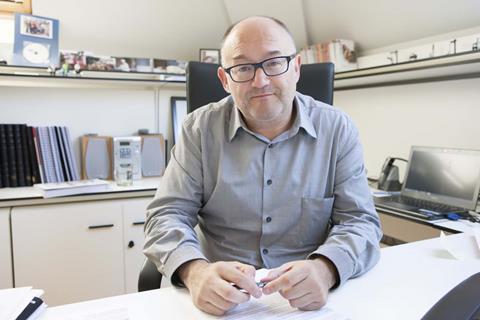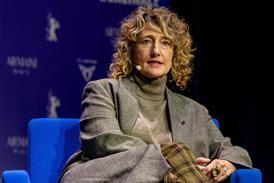
Jose Luis Rebordinos, director of the San Sebastián International Film Festival, reveals the planning involved in hosting a film festival during a global pandemic, managing the loss in revenue and the international films and guests he is looking forward to celebrating.
How has the increase of Covid-19 cases in Spain impact the last stage of preparations for the start of the festival?
Despite the attention given to the rise of cases, the number of cases that have required hospitalisation and ICU hasn’t gone up so much, very different numbers compared to the first wave of the virus. Obviously, the situation is worse than three or four weeks ago but not as bad as the number of cases registered would suggest. Therefore, it hasn’t affected in a significant manner the preparations for the festival. The safety measures are the ones we have been working on from the start, with a significant reduction of occupancy in theatres for screenings, strict hygienic protocols, orderly flows of people coming in and out of screenings and social distancing. The same ones that have been implemented at the Venice film festival.
What is the percentage of occupancy in theatres for the screenings?
About 50 to 60%. Except at the main venue of the festival, the Kursaal [where press and audience screenings are held as well as the gala premieres and opening and closing ceremonies]. There, the percentage of occupancy is significantly smaller because from a total of 1.750 seats only 600 will be used. This means that overall, adding up all the venues, we’ll have 40% of seats available compared to last year’s edition. In accordance to the protocols set by the Basque government, for screenings that are more than three hours long, the audience will be required to wear a specific type of face mask: the FFP2 or KN95 because they are the ones that can ensure a proper protection for that period of time compared to surgical masks.
No screenings online?
No, the films will be watched in theatres, the only activities we’ll have online are the industry ones as well as the new section of the festival: Thought and Discussion, that promotes the discussion of cinema from different points of view and this year includes masterclasses by Aaron Sorkin and Ted Hope.
Is it compulsory to wear a mask on the street in San Sebastián?
Yes. And the public won’t be able to attend go near the red carpet, that will be only for photographers and TV cameras.
The success Venice has had in holding a film festival during a global pandemic must be very encouraging.
It has been fantastic news, the proof that we can organise a safe festival, with its challenges of course, but a success, nevertheless. It has been a celebration of cinema with an excellent programme that, in the end, is what remains. I hope that when this edition of San Sebastián ends next week we’ll be talking about the films, about cinema. What we have also learned from Venice, concerning the safety measures, is that you have to be constantly alert to ensure people respect the rules. Everybody should be aware that the measures have been set up to protect us all and that they have to be regarded.
You attended the opening ceremony in Venice with other European film festival directors to honour the importance of cinema and the festivals that celebrate it and promote it. It is the turn of the Cannes film festival director, Thierry Frémaux to do the same in San Sebastián at opening night.
Yes, our relationship with Cannes is particularly relevant this year. We will be screening 16 Cannes selection label films in different sections of our festival and we agreed we wanted to celebrate cinema and theatrical exhibition, festivals and the industry.
What about the impact of Covid on the number of guests attending?
Guests from Asia unfortunately won’t be able to join us and the same goes for the ones from Latin America with the exception of the team in the film in competition [the Argentinian We Will Never Die, by Eduardo Crespo] that we hope will be able to come. International guests include Matt Dillon, Johnny Depp, Viggo Mortensen and Gina Gershon, but mostly European and Spanish stars. The quarantine for people who have visited Spain declared in several countries, like the UK, has also complicated things.
What’s the impact on the financial side?
It’s early days yet. We are going to lose about €1.5m from box office and sponsors but we are also cutting expenses like the screenings at the Velodrome or in guests, so the deficit, in the end, should be small, manageable.
Logistics aside, how do you feel opening the 68th edition of San Sebastián?
I’m delighted to be able to have opened with a big name like Woody Allen and to close next week with another: Fernando Trueba. And the fact that Allen’s film, Rifkin’s Festival is a love letter to the city of San Sebastián and the festival itself has made it even more special. I would like that cinema, in the end, is the star of this edition, that we talk about the films that are being shown, the content not as much as the context.

























No comments yet